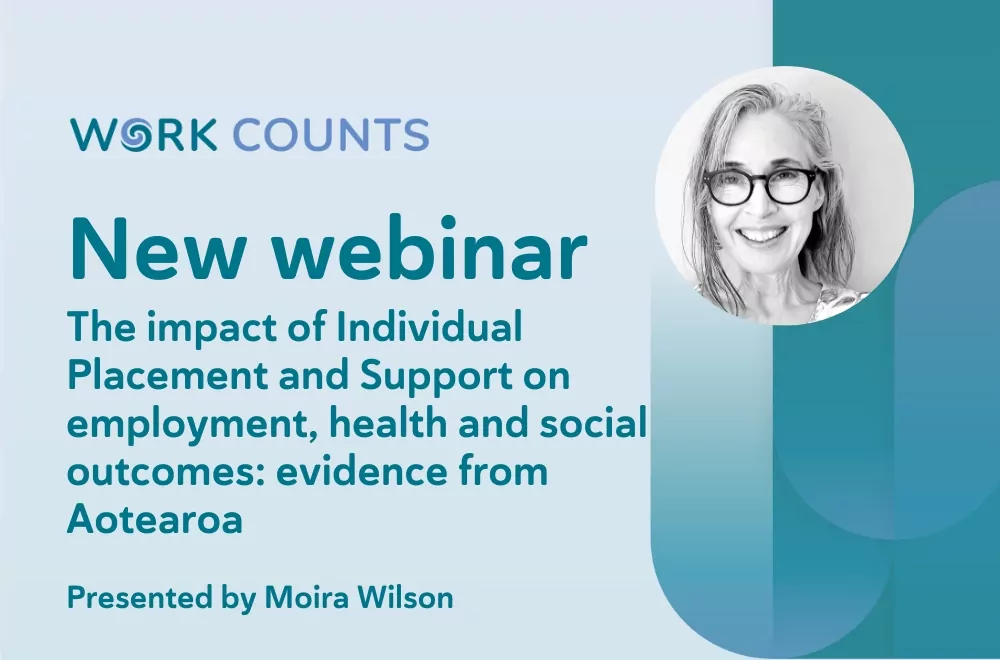Implementing an IPS prototype in West Auckland

Published:
January 5, 2020
Library type:
Keywords:
Workwise shares their recent experience implementing an IPS prototype programme within a community mental health centre in West Auckland, as explained by Richard Bell.
Last year the non-government employment support provider, Workwise partnered with the Waitemata District Health Board to implement an IPS prototype programme within a community mental health centre. The objective of the prototype was to see if an IPS service could reach good IPS fidelity within a nine-month time frame.
The team were based at Waimarino Community Mental Health Centre in the western suburbs of Auckland. Parts of this region have moderate to high social deprivation, e.g. high levels of unemployment, low levels of tertiary education or qualifications, poor housing, and dependence on social welfare benefits.
A Māori mental health (Moko) and general adult team (West Recovery) were identified for the prototype, with two employment specialists provided by Workwise.
In the go-live phase of the prototype, the IPS supervisor focused on developing high trust relationships with each of the clinical teams at management and clinical levels, prior to the employment specialists starting. This was prioritized with a focus on Māori cultural protocols such as whakatau (welcome) and whakawhanaungatanga (connection). Focus was held on becoming one with the Moko whānau. All team members and Workwise senior management took part in cultural ceremonies.
Employment specialists maintained a high level of integration by sharing office space with clinical team members and attending clinical meetings and morning karakia (prayer) at Moko Services.
The IPS supervisor was present (at least weekly) to meet with clinical management and supervisors. They ran several in-service training sessions on IPS principles for the clinical team. After nine months an external fidelity review was conducted and a score of 97 was achieved. This was a positive achievement given the short time frames.
A full trial for the next two years for 450 participants has now been funded, with eight employment specialists to be integrated with mental health teams. Key learnings include that when developing IPS within cultural settings, it is imperative to have meaningful consultation and co- design, to ensure partnership is developed from the very beginning.
The prototype was successful due to the clinical team’s willingness to have new members integrated into their teams. This resulted in good employment outcomes. Together there is a strong commitment to partnership.
This story was originally published in the Employment Works! newlsetter (Fall 2019). Read the original article online.


